Vegetable Juices
12 Tips for Choosing Low-Sugar Vegetable Juices

Were you aware that a lot of vegetable juices come packed with concealed sugars? As we aim for healthier options, paying attention to the amount of sugar in our drinks is essential.
That’s why we’ve put together these 12 tips for choosing low-sugar vegetable juices. From reading nutritional labels to consulting with a nutritionist, we’ll guide you through the process of finding the best options for your health and wellness journey.
Let’s get started!
Key Takeaways
- Pay attention to sugar content in vegetable juices and look for low-sugar or no added sugar options.
- Compare different brands for lower sugar content and be aware of alternative names for sugar in ingredient lists.
- Consider freshly squeezed vegetable juices for higher nutrient density and better taste preferences.
- Prioritize vegetable juices made with 100% vegetables and consider homemade juices to control sugar content and avoid added sugars.
Understanding Sugar Content
Understanding the sugar content of vegetable juices is essential when trying to make healthier choices for our diets. Many people turn to vegetable juices as a way to increase their intake of vitamins and minerals, but it’s important to be aware of the sugar content as well.

While vegetables themselves contain natural sugars, some brands of vegetable juices may also contain added sugar or sweeteners. To make healthier choices, look for vegetable juices that are labeled as ‘low-sugar’ or ‘no added sugar.’
Additionally, consider using sugar substitutes or natural sweeteners to enhance the flavor of your vegetable juices without adding extra sugar.
Reading Nutritional Labels
When it comes to reading nutritional labels on vegetable juices, there are a few key points to keep in mind.
First, be aware of hidden sources of sugar, as they can contribute to your overall intake.
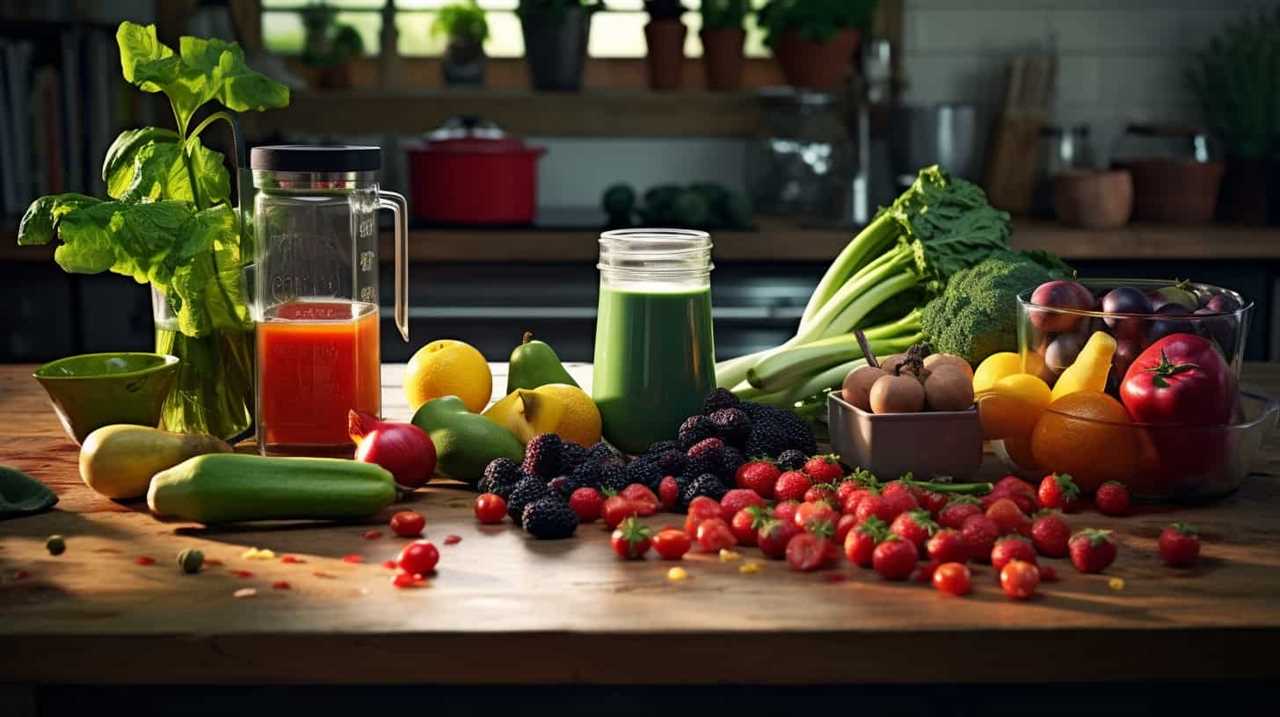
Second, understand the serving sizes listed on the labels, as they may differ from the amount you actually consume.
Lastly, compare different brands to find the one with the lowest sugar content and the highest nutritional value.
Hidden Sugar Sources
How can we identify hidden sugar sources in vegetable juices by reading nutritional labels? Here are three key things to look for:
- Different names for sugar: Sugar can be disguised under various names on ingredient lists, such as high fructose corn syrup, maltose, dextrose, or evaporated cane juice. By familiarizing ourselves with these alternative names, we can be more aware of the sugar content in our vegetable juices.
- Position on the ingredient list: Ingredients are listed in descending order of quantity. If sugar or its alternative names are listed near the beginning, it indicates a higher sugar content. Opt for vegetable juices with sugar sources listed further down the ingredient list.
- Total sugar content: Pay attention to the total grams of sugar per serving. The American Heart Association recommends limiting added sugar intake to 25 grams per day for women and 36 grams per day for men to avoid the health risks associated with consuming excess sugar.
Understanding Serving Sizes
Continuing our exploration of hidden sugar sources in vegetable juices, it’s important to understand serving sizes when reading nutritional labels. Serving size awareness is crucial for maintaining a healthy diet and managing sugar intake.

Nutritional labels provide valuable information about the amount of sugar in a product, but it’s essential to pay attention to the serving size listed. Many people unknowingly consume more sugar than they realize because they don’t consider the serving size indicated on the label.
To practice portion control techniques, it’s helpful to measure out the recommended serving size or use visual cues like comparing it to familiar objects. By being aware of serving sizes and practicing portion control, we can make informed choices and manage our sugar intake more effectively.
Comparing Different Brands
To further analyze the sugar content in vegetable juices, let’s delve into the process of comparing different brands by reading their nutritional labels.
When comparing nutrient content, keep the following in mind:

- Look for the total sugar content per serving. Aim for brands with lower sugar content to ensure you’re making a healthier choice.
- Pay attention to added sugars. Some brands may add additional sweeteners, which can significantly increase the sugar content.
- Evaluate taste profiles. While it’s important to choose low-sugar options, it’s equally crucial to find a brand that you enjoy. Experiment with different brands to find one that suits your taste preferences.
Comparing Juice Brands
When comparing juice brands, we consider their nutritional content, taste, and price.
Taste preferences vary from person to person, so it’s important to compare different brands to find one that suits your palate. Some brands may offer a sweeter taste, while others may have a more subtle flavor.
It’s also important to consider the nutritional content of the juices. Look for brands that offer low-sugar options and are made with high-quality ingredients.
Price is another factor to consider when comparing juice brands. Some brands may be more expensive due to their premium ingredients or production methods, while others may offer budget-friendly options.
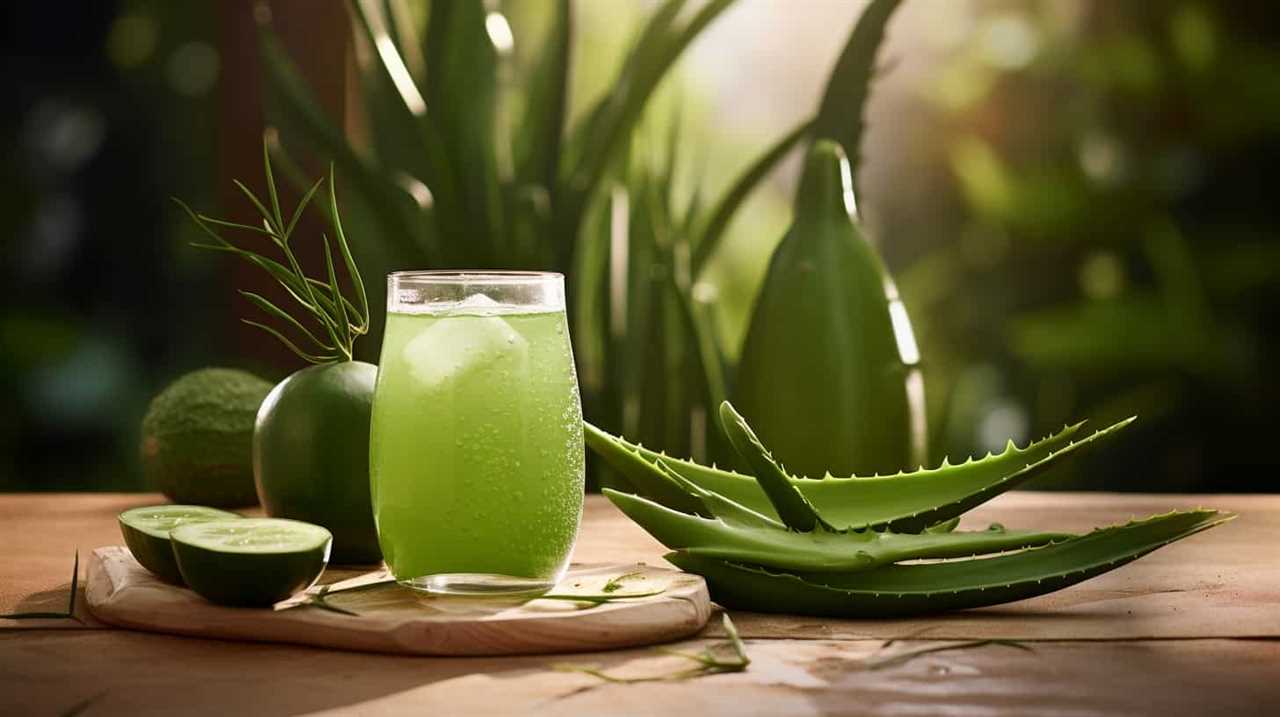
Ultimately, it’s about finding a balance between taste, nutrition, and affordability when choosing the right juice brand for you.
Opting for Freshly Squeezed
When it comes to choosing low-sugar vegetable juices, opting for freshly squeezed options can offer numerous health benefits. Freshly squeezed juices retain more of the nutrients found in vegetables compared to processed juices.
Additionally, the taste and flavor of freshly squeezed juices can be preferred by individuals who enjoy the natural flavors of vegetables.
Health Benefits of Fresh Juices
Our experience with freshly squeezed juices has shown us the immense health benefits they provide. When compared to store-bought juices, freshly squeezed juices offer a higher concentration of essential nutrients, enzymes, and antioxidants.
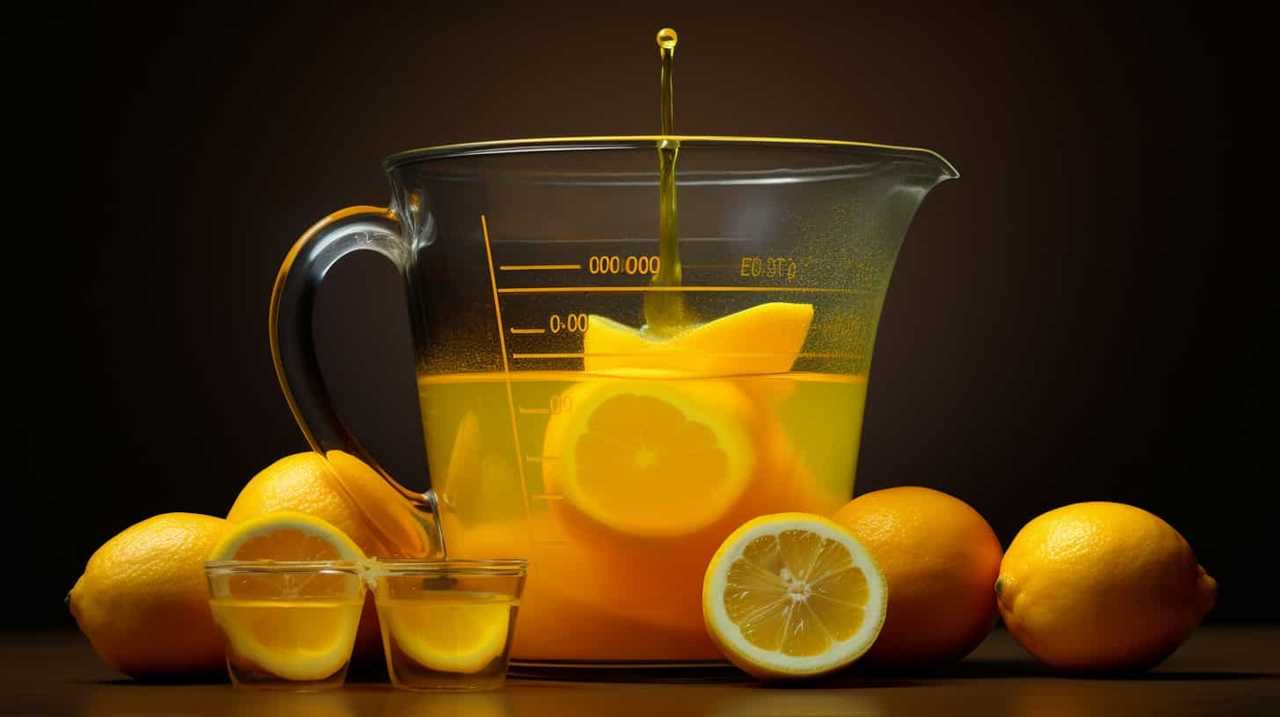
Here are three key health benefits of opting for freshly squeezed juices:
- Increased nutrient absorption: Freshly squeezed juices retain more vitamins, minerals, and enzymes compared to processed juices. This enhances nutrient absorption, promoting better overall health.
- Boosted immune system: Fresh juices are packed with antioxidants that help strengthen the immune system and protect against various diseases and infections.
- Improved digestion: The enzymes present in freshly squeezed juices aid in digestion by breaking down food more efficiently, promoting better nutrient absorption and reducing digestive issues.
Nutrient Content Comparison
To understand the nutrient content comparison between freshly squeezed juices and store-bought alternatives, we must examine the various factors that contribute to their differences. One important factor is the nutrient density of the juice. Freshly squeezed vegetable juices are known for their high nutrient density, as they retain more vitamins, minerals, and antioxidants compared to store-bought options. Another factor to consider is the glycemic index, which measures how quickly a food raises blood sugar levels. Freshly squeezed juices generally have a lower glycemic index compared to store-bought alternatives, which can be beneficial for those watching their blood sugar levels. To help you visualize the differences, here is a comparison table:
| Nutrient Content | Freshly Squeezed Juice | Store-Bought Juice |
|---|---|---|
| Vitamin C | High | Varies |
| Fiber | Moderate | Low |
| Antioxidants | High | Varies |
| Added Sugars | None | High |
Tasting and Flavor Preferences
Continuing from the previous subtopic, let’s explore our tasting and flavor preferences when opting for freshly squeezed vegetable juices. When it comes to taste preferences, everyone has their own unique palate. However, there are a few key flavor profiles that many people enjoy in vegetable juices.
Here are three items to consider:

- Sweet and Tangy: Some individuals prefer a juice that combines the sweetness of fruits like apples or oranges with the tanginess of vegetables like carrots or tomatoes.
- Earthy and Herbaceous: For those who enjoy a more savory flavor, juices with ingredients like kale, spinach, and parsley can provide an earthy and herbaceous taste.
- Refreshingly Citrus: Citrus fruits such as lemon, lime, or grapefruit can add a refreshing twist to vegetable juices and provide a zesty flavor.
By understanding our taste preferences and exploring different flavor profiles, we can find the perfect freshly squeezed vegetable juice that suits our individual palates.
Now, let’s move on to the next section and learn more about choosing 100% vegetable juices.
Choosing 100% Vegetable Juices
When it comes to selecting vegetable juices, we should opt for those made with 100% vegetables. These juices are a great way to incorporate more vegetables into our diet and reap the benefits of their nutritional value.
Juicing vegetables helps to retain vitamins, minerals, and antioxidants that are essential for our health. By consuming 100% vegetable juices, we can ensure that we’re getting all the nutrients that vegetables have to offer without any added sugars or artificial ingredients.

These juices can provide a convenient and easy way to meet our daily vegetable intake and support a balanced diet. So, when choosing vegetable juices, remember to look for those that are made solely from vegetables to maximize their nutritional benefits.
Considering Organic Options
As we consider organic options for vegetable juices, it’s important to prioritize products that are made with 100% organic vegetables. Opting for organic juices not only benefits our health but also supports sustainable farming practices.
Here are some reasons why you should choose organic vegetable juices:
- Organic farming: Organic vegetables are grown without the use of synthetic pesticides, herbicides, or fertilizers. This helps to protect the soil, water, and ecosystem from harmful chemicals.
- Environmental impact: Organic farming practices promote biodiversity, conserve water, and reduce pollution. By choosing organic vegetable juices, you contribute to a healthier environment for future generations.
- Nutritional value: Organic vegetables are typically richer in nutrients and antioxidants compared to conventionally grown ones. This means that organic vegetable juices can provide you with a higher concentration of essential vitamins and minerals.
Exploring Homemade Recipes
Create an image showcasing a vibrant display of freshly squeezed vegetable juices, each labeled with their low-sugar content and featuring assorted vegetables like beetroot, kale, cucumber, and carrots. –v 5.2 –ar 16:9
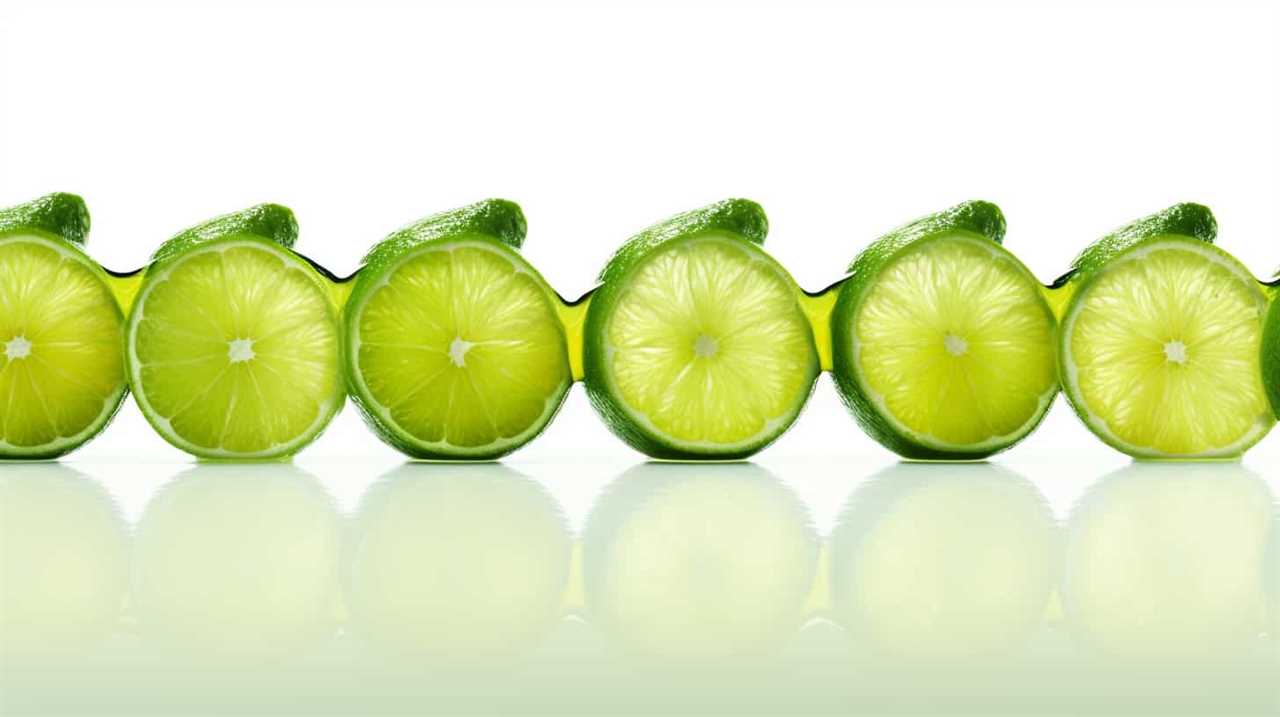
Let’s explore the benefits of making homemade vegetable juices and the various ingredient substitution options available.
Ingredient Substitution Options
We often substitute certain ingredients in our homemade vegetable juices to reduce sugar content. Here are some ingredient substitution options that can help you create low-sugar vegetable juices without compromising on taste or health benefits:
- Stevia: Replace sugar or other sweeteners with stevia, a natural, zero-calorie sweetener. It can add sweetness to your juice without increasing the sugar content.
- Lemon or Lime: Squeeze some fresh lemon or lime juice into your vegetable juice to enhance the flavor. The acidity can create a pleasant tanginess that can make up for the reduced sweetness.
- Cinnamon: Add a dash of cinnamon to your vegetable juice for a warm and spicy flavor. Cinnamon is known to regulate blood sugar levels, making it a perfect substitute for sugar.
Benefits of Homemade Juices
Our homemade juices offer numerous benefits, including the ability to explore and create delicious recipes that suit our individual tastes and health goals. By making our own juices, we have control over the ingredients and can avoid added sugars and preservatives commonly found in store-bought options. Additionally, homemade juices can provide various health benefits due to their high nutrient content. By using fresh fruits and vegetables, we can ensure that our juices are packed with vitamins, minerals, and antioxidants. For example, incorporating leafy greens like spinach or kale can boost our intake of vitamin K and folate, while adding citrus fruits can provide a dose of vitamin C. To illustrate the nutrient content of homemade juices, here is a table showcasing some popular ingredients and their associated health benefits:
| Ingredient | Health Benefits |
|---|---|
| Spinach | High in vitamin K and folate |
| Carrots | Rich in beta-carotene and vitamin A |
| Apples | Contains fiber and antioxidants |
| Berries | Packed with antioxidants and fiber |
With homemade juices, we can tailor our recipes to meet our specific dietary needs and preferences while maximizing the health benefits they provide.

Prioritizing Low-Glycemic Vegetables
When selecting low-sugar vegetable juices, it’s important to prioritize vegetables with a low-glycemic index. The glycemic index (GI) is a measure of how quickly a food raises blood sugar levels. By choosing vegetables with a low GI, you can help maintain stable blood sugar levels and promote overall health.
Here are three low-glycemic vegetables to consider:
- Leafy greens: Vegetables like spinach, kale, and lettuce have a low GI and are packed with nutrients.
- Cruciferous vegetables: Broccoli, cauliflower, and Brussels sprouts aren’t only low in sugar but also high in fiber and antioxidants.
- Cucumbers: This refreshing vegetable isn’t only low in sugar but also hydrating and rich in vitamins.
By incorporating these low-glycemic vegetables into your juice choices, you can enjoy a delicious and nutritious beverage without causing spikes in blood sugar levels.
Now, let’s move on to the next section about avoiding added sweeteners.

Avoiding Added Sweeteners
To ensure a low-sugar vegetable juice, it’s essential to avoid the addition of sweeteners. While some may be tempted to enhance the flavor of their vegetable juice with sugar alternatives or natural sweeteners, it’s important to remember that these additions can significantly increase the sugar content of the juice.
Instead, focus on using the natural sweetness of the vegetables themselves. Many vegetables, such as carrots and beets, have a natural sweetness that can be enhanced by juicing them.
Additionally, adding a small amount of lemon or lime juice can help balance the flavors and provide a refreshing tanginess.
Seeking Fiber-Rich Options
One important consideration when choosing low-sugar vegetable juices is to look for options that are high in fiber. Fiber-rich options not only provide numerous health benefits but also help to keep you feeling full and satisfied. Here are three reasons why seeking fiber-rich options is beneficial:
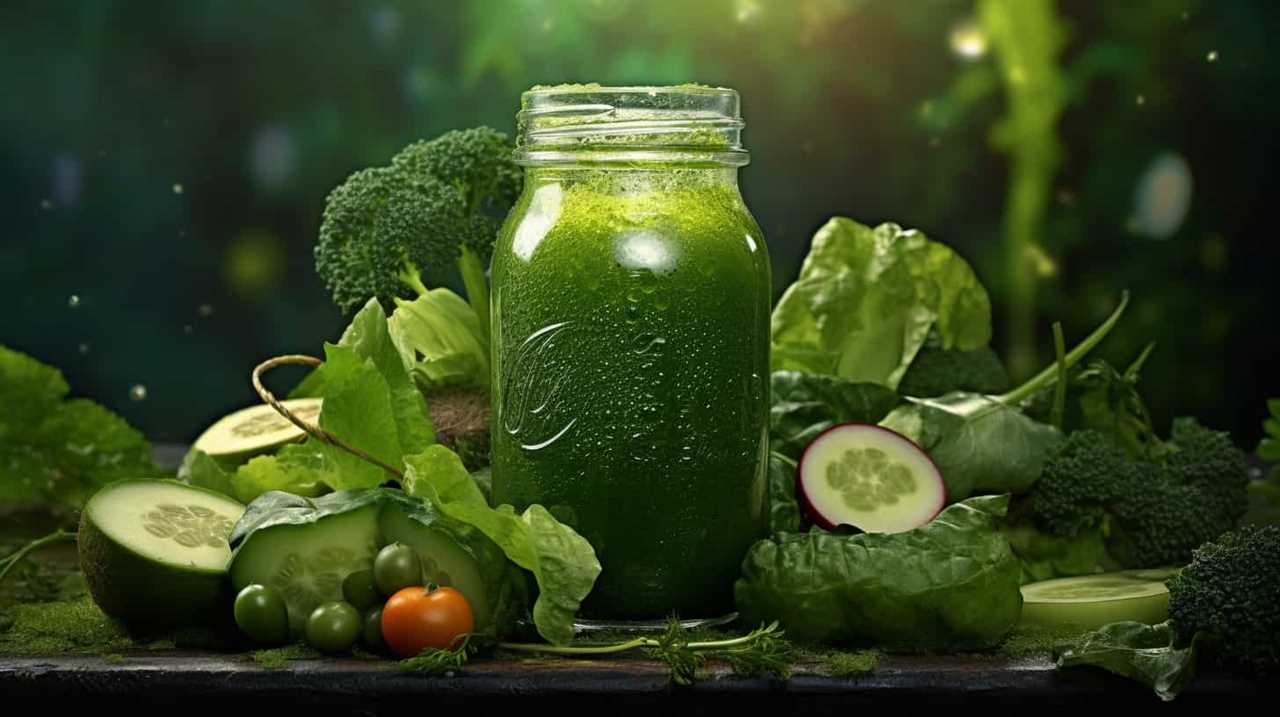
- Improved digestion: Fiber helps to promote regular bowel movements and prevent constipation, keeping your digestive system healthy and functioning properly.
- Blood sugar control: Foods high in fiber have a slower impact on blood sugar levels, which can help prevent spikes and crashes, making them a great choice for individuals with diabetes or those aiming to stabilize their blood sugar.
- Heart health: High fiber intake has been linked to a reduced risk of heart disease and lower cholesterol levels.
By choosing fiber-rich options, you can support your overall health and well-being.
Now, let’s explore the next section on looking for cold-pressed varieties.
Looking for Cold-Pressed Varieties
How can we identify cold-pressed varieties of low-sugar vegetable juices? Cold-pressed juices are made using a hydraulic press that extracts juice from fruits and vegetables without generating heat. This method helps preserve the nutrients and enzymes in the juice, resulting in a fresher and more nutrient-dense product compared to juices made with centrifugal juicers. To choose a cold-pressed vegetable juice, look for key phrases on the label such as "cold-pressed," "raw," or "unpasteurized." Additionally, check for a short shelf life, as cold-pressed juices typically have a shorter expiration date due to the lack of pasteurization. The following table provides a comparison between cold-pressed and centrifugal juicers:
| Cold-Pressed Juicers | Centrifugal Juicers |
|---|---|
| Retain more nutrients | Nutrient loss due to heat |
| Produce less foam | More foam due to high-speed spinning |
| Longer shelf life | Longer shelf life |
| Higher price point | Lower price point |
When choosing low-sugar vegetable juices, opting for cold-pressed varieties ensures that you’re getting the most nutritional benefit from your juice.

Consulting With a Nutritionist
When consulting with a nutritionist, we can further explore the benefits of choosing low-sugar vegetable juices, such as the nutrient density provided by cold-pressed varieties. The expertise of a nutritionist can be invaluable in navigating the overwhelming array of options available in the market.
Here are three key benefits of consulting with a nutritionist:
- Personalized Recommendations: A nutritionist can assess your individual needs, taking into account factors like your health goals, dietary restrictions, and any existing health conditions. They can then provide tailored recommendations on the best low-sugar vegetable juices to incorporate into your diet.
- Nutritional Guidance: Nutritionists are knowledgeable about the nutritional content of different vegetable juices and can help you select ones that are rich in essential vitamins, minerals, and antioxidants. They can also guide you on portion sizes and how to incorporate these juices into a balanced diet.
- Long-term Health Support: By working with a nutritionist, you can receive ongoing support and guidance in making healthy choices. They can help you develop sustainable habits and provide strategies to maintain your progress over time.
Consulting with a nutritionist can be a valuable step towards making informed choices and optimizing your health through low-sugar vegetable juices.
Frequently Asked Questions
Are There Any Specific Vegetables That Are Naturally Low in Sugar and Would Be a Good Choice for Making Vegetable Juices?
Some vegetables that are naturally low in sugar and make good choices for vegetable juices include cucumber, celery, and kale. These low-sugar vegetable juices can be beneficial for weight loss as they are lower in calories and help maintain blood sugar levels.

What Are Some Common Added Sweeteners That Can Be Found in Vegetable Juices?
Some common added sweeteners in vegetable juices include cane sugar, agave syrup, and fruit juice concentrates. However, there are healthier alternatives like stevia or monk fruit extract that can provide sweetness without the added sugar.
Are There Any Vegetable Juices That Have a Higher Fiber Content Compared to Others?
Some vegetable juices have a higher fiber content compared to others, which can be beneficial for our health. Incorporating fiber into our diet can aid in digestion and promote feelings of fullness.
Can Vegetable Juices That Are Not Freshly Squeezed Still Be Considered Low in Sugar?
Yes, vegetable juices that are pasteurized can still be considered low in sugar. However, it’s important to check the label for added sugars. Some vegetables, like carrots and beets, are naturally high in sugar and should be consumed in moderation.
How Can I Determine if a Vegetable Juice Is Cold-Pressed or Not?
To determine if a vegetable juice is cold-pressed, we can look for key phrases on the label like "cold-pressed" or "raw". Cold-pressed juices retain more nutrients and enzymes, making them a healthier choice for our health.

Conclusion
In conclusion, by understanding sugar content, reading labels, and comparing brands, we can make informed choices when selecting low-sugar vegetable juices.
Opting for freshly squeezed and 100% vegetable juices without added sweeteners is also important.
Seeking fiber-rich options and cold-pressed varieties can further enhance the nutritional value.
If in doubt, consulting with a nutritionist can provide personalized guidance.

So, why settle for high-sugar options when we can enjoy delicious and healthier vegetable juices?
Susannah expertise lies in researching and compiling evidence-based content on juicing, nutrition, and overall health. She is committed to ensuring that The Juicery World offers accurate, up-to-date, and trustworthy information to empower readers to take control of their health. Susannah’s goal is to inspire individuals to embrace juicing as a way to nourish their bodies and live their best lives.
Vegetable Juices
What Are the Health Benefits of Vegetable Juices?

- Nutritional differences between whole vegetables and vegetable juices.
- Factors to consider when incorporating vegetable juices into a balanced diet
As we enjoy the rich flavors of nature’s goodness in vegetable juices, our bodies are nourished with a plethora of health benefits to celebrate.
These nutrient-packed concoctions act as a fortress, fortifying our immune systems and guarding against illness.
They work tirelessly to nourish our digestive systems, promoting optimal function and gut health.
With each sip, the detoxification process is enhanced, purging toxins and rejuvenating our cells.

Join us on this journey as we explore the myriad ways vegetable juices support our hearts, skin, and hair.
Key Takeaways
- Vegetable juices boost the immune system and provide energy.
- Vegetable juices promote digestive health and weight loss.
- Vegetable juices enhance detoxification and liver health.
- Vegetable juices support heart health and blood pressure.
Boosts Immune System
One of the key benefits of vegetable juices is that they enhance our immune system. Vegetable juices are packed with essential nutrients, such as vitamins A, C, and E, which are known to support our immune system. These vitamins act as antioxidants, helping to protect our cells from damage and strengthening our immune response. Additionally, vegetable juices contain phytochemicals, which are natural compounds that have been shown to have immune-boosting properties. These compounds help to increase the production of white blood cells, which are crucial for fighting off infections and diseases.
By regularly consuming vegetable juices, we can provide our bodies with the immune system support they need to stay healthy and ward off illnesses.
Not only do vegetable juices enhance our immune system, but they also provide a natural energy boost. The nutrients in vegetable juices, such as B vitamins and iron, help to increase our energy levels and combat fatigue. Furthermore, vegetable juices are a great source of hydration, which is essential for maintaining optimal energy levels throughout the day.

Promotes Digestive Health
To promote digestive health, vegetable juices can be beneficial when consumed regularly.
Vegetable juices are rich in fiber, which improves gut function by aiding in digestion and preventing constipation. The high fiber content in vegetable juices helps to promote regular bowel movements and maintain a healthy digestive system.
Additionally, vegetable juices are low in calories and can aid in weight loss. By replacing sugary beverages with vegetable juices, individuals can reduce their calorie intake while still obtaining essential nutrients and vitamins.
Furthermore, vegetable juices contain antioxidants and phytochemicals that help to reduce inflammation in the gut and promote a healthy gut microbiome.

Enhances Detoxification
Vegetable juices enhance detoxification by supporting the liver’s natural cleansing processes. When we consume vegetable juices, we provide our bodies with essential nutrients that improve liver function, allowing it to efficiently remove toxins from our system.
Here are some ways in which vegetable juices aid in detoxification:
- Increased hydration: Vegetable juices are rich in water content, helping to flush out toxins and hydrate the body.
- Antioxidant power: Vegetables like kale, spinach, and carrots are packed with antioxidants that protect the liver from damage caused by harmful substances.
- Fiber boost: Juicing vegetables retains their fiber content, which aids digestion and promotes regular bowel movements, preventing toxin buildup.
- Weight loss support: Vegetable juices are low in calories and high in nutrients, making them an excellent addition to a weight loss diet. Shedding excess pounds can also reduce the burden on the liver, allowing it to function optimally.
Incorporating vegetable juices into our diets can be a simple and effective way to enhance detoxification and support overall health.
Supports Heart Health
As we continue exploring the health benefits of vegetable juices, it’s important to highlight their role in supporting heart health. Consuming vegetable juices can contribute to cardiovascular health and help maintain healthy blood pressure levels. Many vegetables, such as beets and leafy greens, are rich in nitrates, which have been shown to have a positive impact on heart health. Nitrates are converted into nitric oxide in the body, which helps relax and widen blood vessels, improving blood flow and reducing blood pressure.

Additionally, vegetable juices are packed with antioxidants and phytochemicals that can reduce inflammation and oxidative stress, both of which are risk factors for heart disease. By incorporating vegetable juices into our diet, we can potentially protect and support the health of our heart.
Transitioning to the next section, let’s now explore how vegetable juices can improve skin and hair health.
Improves Skin and Hair Health
Continuing our exploration of the health benefits of vegetable juices, we can now delve into how they improve the health of our skin and hair.
Here are some ways that vegetable juices can help with hair growth and skin rejuvenation:

- Hydration: Vegetable juices are rich in water content, which helps to keep our skin hydrated and prevents dryness and flakiness.
- Nutrient boost: Vegetables like carrots, spinach, and kale are packed with vitamins and minerals that are essential for healthy hair and skin. These nutrients nourish the cells and promote hair growth and a glowing complexion.
- Antioxidant power: Vegetables contain antioxidants that protect our skin and hair from damage caused by free radicals. This helps to reduce signs of aging and keeps our skin and hair looking youthful.
- Detoxification: Vegetable juices aid in the detoxification process, helping to remove toxins from our body that can affect our skin and hair health.
Frequently Asked Questions
Can Vegetable Juices Help With Weight Loss?
Yes, vegetable juices can aid in weight loss. Through juicing techniques, they provide essential nutrients while being low in calories. Additionally, juicing for detoxification can help eliminate toxins and support overall health.
Are There Any Specific Vegetables That Are Better for Juicing Than Others?
There are specific vegetables that are better for juicing than others, such as spinach, kale, and celery. Incorporating these into your juicing recipes can provide numerous health benefits. They are great for beginners looking to start a healthy juicing routine.
How Often Should I Drink Vegetable Juices to Experience Their Health Benefits?
To experience the health benefits of vegetable juices, we should incorporate them into our daily routine. It’s important to drink them regularly, but the frequency may vary depending on individual needs and preferences.
Can Vegetable Juices Be Used as a Substitute for Whole Vegetables in a Balanced Diet?
Vegetable juices can be a convenient way to incorporate nutrients into a balanced diet. However, it’s important to consider the nutritional differences between whole vegetables and juices, and to ensure variety and moderation in consumption.

Are There Any Potential Side Effects or Risks Associated With Consuming Vegetable Juices Regularly?
There may be potential risks associated with consuming vegetable juices regularly, such as digestive issues or nutrient imbalances. However, these can be minimized by ensuring variety, moderation, and consulting with a healthcare professional.
Conclusion
In conclusion, vegetable juices offer a plethora of health benefits.
Just like a powerful superhero, they boost our immune system, promote digestive health, enhance detoxification, support heart health, and improve skin and hair health.
By incorporating vegetable juices into our daily routine, we can harness the superpowers of these nutrient-packed drinks and embark on a journey towards a healthier and happier life.

So, let’s raise our glasses and toast to the incredible health benefits of vegetable juices!
Susannah expertise lies in researching and compiling evidence-based content on juicing, nutrition, and overall health. She is committed to ensuring that The Juicery World offers accurate, up-to-date, and trustworthy information to empower readers to take control of their health. Susannah’s goal is to inspire individuals to embrace juicing as a way to nourish their bodies and live their best lives.
Vegetable Juices
What Are the Health Benefits of Cold-Pressed Vegetable Juice?

We all desire to feel our best and maintain good health, correct? Did you know that cold-pressed vegetable juice can have a significant impact on our well-being? It’s a fact!
In fact, studies have shown that drinking this nutrient-packed juice can boost our immunity, support digestion, enhance detoxification, promote heart health, and even improve our skin’s radiance.
So, if you’re looking to serve your body some serious goodness, keep reading to discover the incredible health benefits of cold-pressed vegetable juice.
Key Takeaways
- Cold-pressed vegetable juice supports immune system function by enhancing the production of white blood cells and reducing inflammation.
- It positively impacts the gut microbiome, aids in digestion, and ensures maximum nutrient absorption.
- Regular consumption of cold-pressed vegetable juice helps lower blood pressure and cholesterol levels, promoting cardiovascular health.
- It enhances skin health and radiance by promoting collagen production, protecting the skin from free radicals, and improving hydration.
Boosts Immunity
Boosting immunity is one of the key benefits that cold-pressed vegetable juice provides for us. Our immune system plays a crucial role in protecting our bodies from infections and diseases. Cold-pressed vegetable juices are rich in vitamins, minerals, and antioxidants that support immune system function. These nutrients help to strengthen our immune response by enhancing the production of white blood cells, which are responsible for fighting off harmful pathogens.

Additionally, cold-pressed vegetable juice can help reduce inflammation in the body, which can further support immune function. To maximize the immune-boosting benefits of cold-pressed vegetable juice, it’s important to choose recipes that incorporate immune-boosting ingredients such as spinach, kale, ginger, turmeric, and citrus fruits. By regularly consuming cold-pressed vegetable juices, we can give our immune system the support it needs to stay strong and healthy.
Supports Digestive Health
To continue our exploration of the health benefits of cold-pressed vegetable juice, let us now delve into how it supports digestive health. Consuming cold-pressed vegetable juice can have a positive impact on our gut microbiome and nutrient absorption.
The gut microbiome is a complex community of microorganisms that reside in our digestive tract. These microorganisms play a crucial role in maintaining digestive health and overall well-being. Cold-pressed vegetable juice contains a plethora of vitamins, minerals, and antioxidants that can nourish and support the growth of beneficial bacteria in the gut. By promoting a healthy balance of gut bacteria, cold-pressed vegetable juice can aid in digestion and reduce the risk of digestive disorders.
Furthermore, the nutrients present in cold-pressed vegetable juice are easily absorbed by the body. The juicing process breaks down the cell walls of vegetables, making it easier for the body to access and absorb the essential nutrients. This can enhance nutrient absorption and ensure that our bodies receive the maximum benefits from the vegetables we consume.
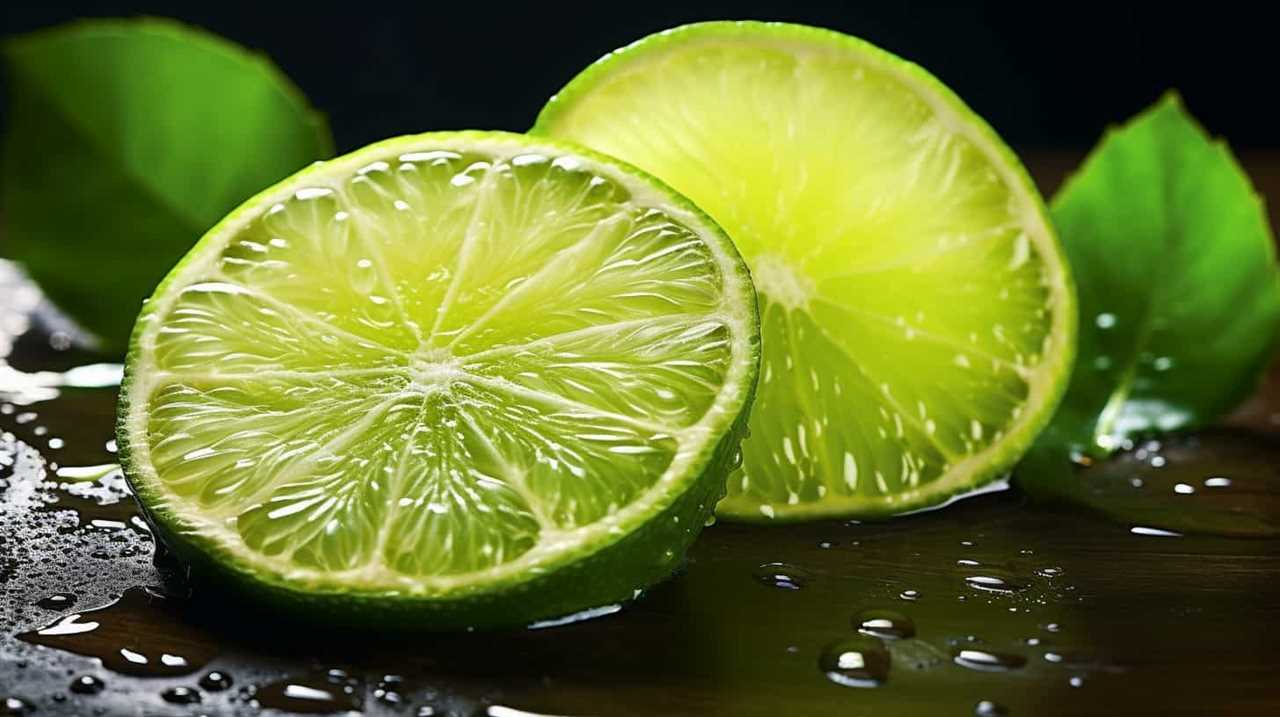
In summary, consuming cold-pressed vegetable juice can support digestive health by promoting a healthy gut microbiome and enhancing nutrient absorption. By incorporating this nutrient-rich beverage into our diet, we can nourish our bodies from within and support overall digestive well-being.
| Benefits of Cold-Pressed Vegetable Juice for Digestive Health |
|---|
| Supports a healthy gut microbiome |
| Enhances nutrient absorption |
| Aids in digestion |
Note: The above table is for illustrative purposes only and does not represent actual data.
Enhances Detoxification
Cold-pressed vegetable juice promotes heart health by providing essential nutrients that support cardiovascular function. The juice is packed with vitamins, minerals, and antioxidants that help reduce inflammation and oxidative stress, which are risk factors for heart disease. Regular consumption of cold-pressed vegetable juice can help lower blood pressure and cholesterol levels, leading to improved heart health. Furthermore, the juice is a good source of dietary nitrates, which have been shown to enhance blood flow and improve endothelial function. These cardiovascular benefits make cold-pressed vegetable juice a valuable addition to a heart-healthy diet.
Transition: In addition to its detoxifying and heart-healthy properties, cold-pressed vegetable juice also boosts immune function.
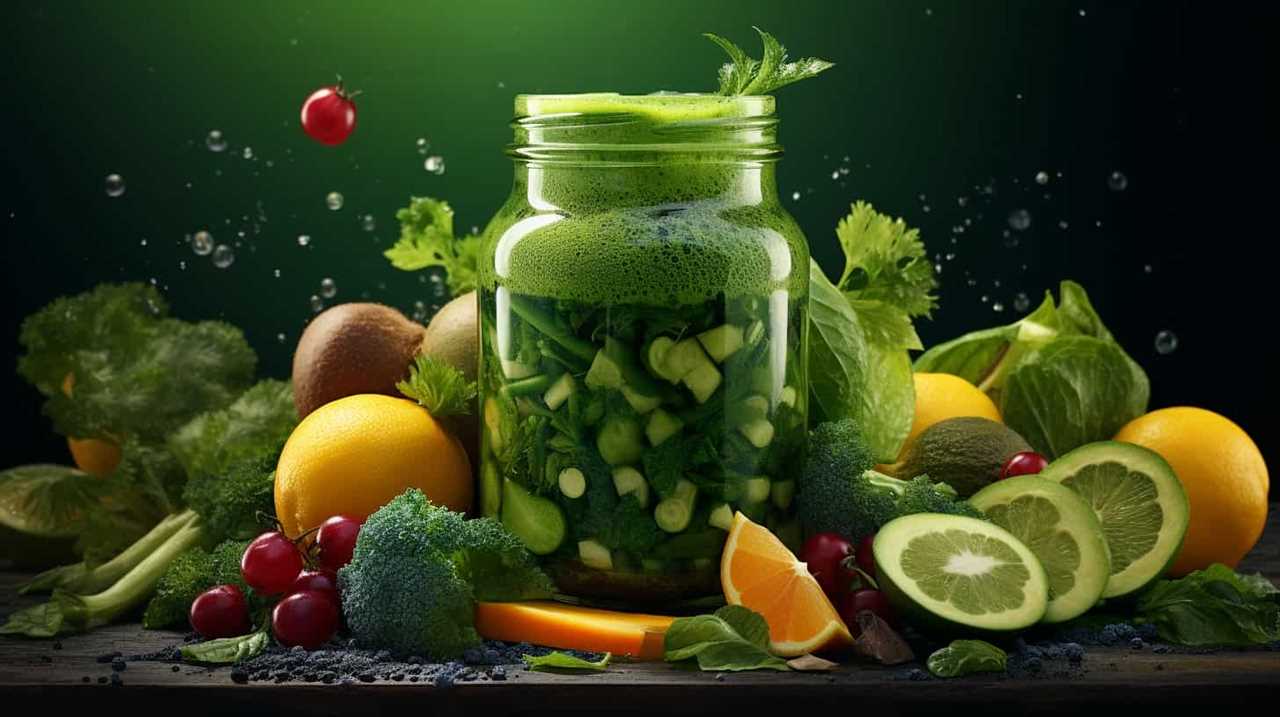
Promotes Heart Health
To promote heart health, we need to regularly consume cold-pressed vegetable juice. This nutrient-rich juice offers several benefits for heart disease prevention and overall cardiovascular health. Here are three reasons why incorporating cold-pressed vegetable juice into your diet can be beneficial:
- Reduces inflammation: Cold-pressed vegetable juice contains antioxidants and anti-inflammatory compounds that help reduce inflammation in the body. Chronic inflammation is linked to an increased risk of heart disease.
- Lowers blood pressure: Vegetables like celery, beets, and spinach, commonly found in cold-pressed vegetable juice, have been shown to naturally lower blood pressure. By incorporating these vegetables into your diet, you can help maintain healthy blood pressure levels.
- Improves cholesterol levels: Cold-pressed vegetable juice is rich in soluble fiber, which can help lower LDL cholesterol levels. By reducing LDL cholesterol, you can decrease your risk of heart disease.
Incorporating cold-pressed vegetable juice into your daily routine is a delicious and convenient way to support heart health and promote overall cardiovascular well-being.
Improves Skin Radiance
Incorporating cold-pressed vegetable juice into our daily routine can enhance the radiance of our skin. Cold-pressed vegetable juices, such as carrot and beet juice, are packed with essential vitamins and antioxidants that promote skin health. These juices are rich in nutrients like vitamin C and beta-carotene, which can help improve skin hydration and reduce the signs of aging.
Vitamin C is known for its ability to promote collagen production, which can help improve skin elasticity and firmness. Additionally, the antioxidants found in cold-pressed vegetable juices can help protect the skin from free radicals and environmental damage.
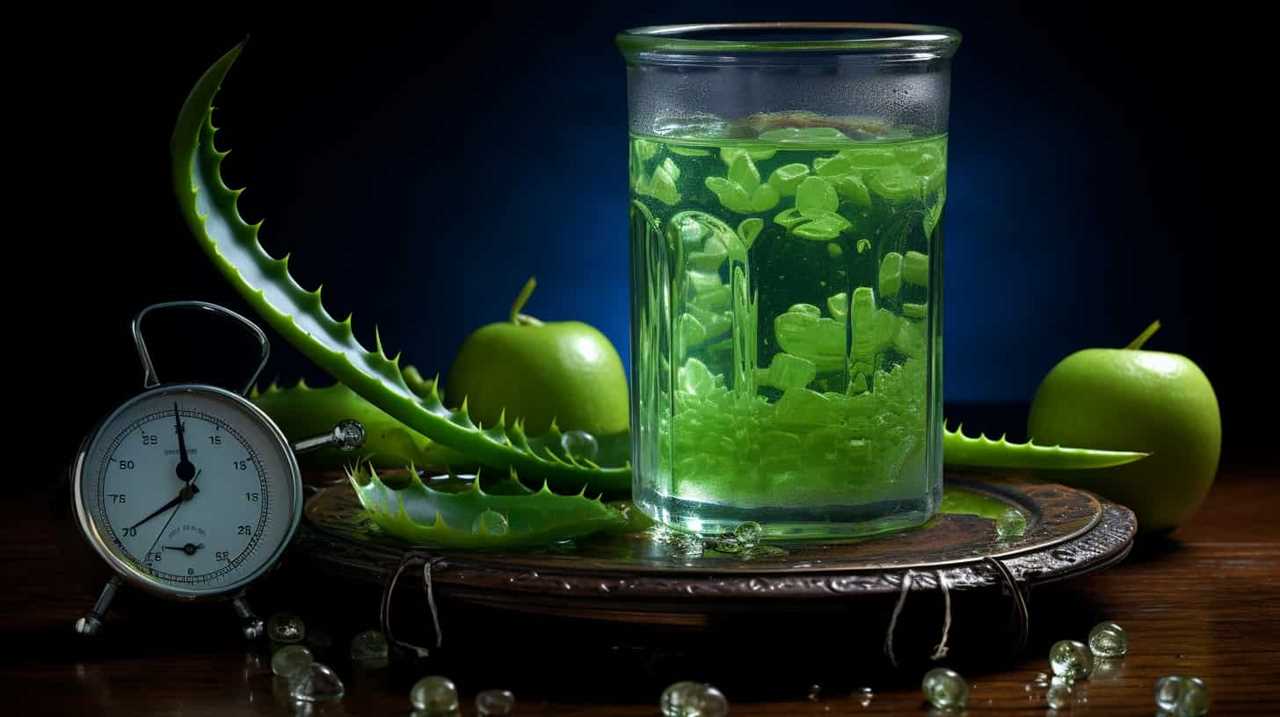
Frequently Asked Questions
Can Cold-Pressed Vegetable Juice Be Consumed by Individuals With Certain Dietary Restrictions or Allergies?
Yes, cold-pressed vegetable juice can be consumed by individuals with certain dietary restrictions or allergies. It provides a nutritious option for those with specific needs, as it is free from common allergens and can be customized to fit various dietary restrictions.
Is There a Specific Time of Day That Is Recommended for Consuming Cold-Pressed Vegetable Juice?
Recommended timing for consuming cold-pressed vegetable juice is in the morning or before meals to maximize digestion benefits. It aids in nutrient absorption and provides a natural energy boost.
How Long Does the Nutrient Content of Cold-Pressed Vegetable Juice Remain Stable After It Is Made?
After making cold-pressed vegetable juice, the nutrient content remains stable for a limited time. However, over a longer period, nutrient degradation may occur. It’s important to consume the juice as soon as possible to maximize its health benefits.
Are There Any Potential Side Effects or Precautions to Consider Before Incorporating Cold-Pressed Vegetable Juice Into One’s Diet?
Before incorporating cold-pressed vegetable juice into our diet, it’s important to consider potential side effects and take necessary precautions. It’s always wise to consult with a healthcare professional to ensure it aligns with our individual health needs.

Can Cold-Pressed Vegetable Juice Be Used as a Meal Replacement or Is It More Suitable as a Supplement to a Balanced Diet?
Cold-pressed vegetable juice can serve as both a meal replacement and a supplement to a balanced diet. It offers benefits such as providing essential nutrients, supporting digestion, and aiding in weight management.
Conclusion
In conclusion, cold-pressed vegetable juice offers numerous health benefits, making it a valuable addition to your diet.
One interesting statistic to consider is that studies have shown that consuming just one serving of cold-pressed vegetable juice per day can increase your daily intake of vitamins and minerals by up to 40%.
This remarkable boost in nutritional value can have a significant impact on your overall health and well-being, leaving you feeling energized and nourished.

Susannah expertise lies in researching and compiling evidence-based content on juicing, nutrition, and overall health. She is committed to ensuring that The Juicery World offers accurate, up-to-date, and trustworthy information to empower readers to take control of their health. Susannah’s goal is to inspire individuals to embrace juicing as a way to nourish their bodies and live their best lives.
Vegetable Juices
Why Should You Learn to Craft Vegetable Juices?

We absolutely must learn to craft vegetable juices! These nutrient-packed concoctions are a game-changer for our health and well-being. They offer a multitude of benefits, from boosting our immune system to aiding in weight loss and detoxification.
Plus, they are easy to make and won’t break the bank. Say goodbye to energy slumps and hello to vitality with the power of vegetable juices.
Let’s dive into the world of juicing and reap the rewards together!
Key Takeaways
- Vegetable juices are packed with essential nutrients, vitamins, and minerals.
- They offer a high nutritional value, providing a concentrated dose of vitamins A, C, and K, as well as minerals like potassium and magnesium.
- Vegetable juices aid in digestion and help break down food due to the enzymes they contain.
- Regular consumption of vegetable juices can support weight loss, detoxification, and enhance energy and vitality.
Health Benefits of Vegetable Juices
We have found that consuming vegetable juices regularly can greatly improve our overall health and well-being. Vegetable juices are packed with essential nutrients, vitamins, and minerals that are vital for our body’s optimal functioning. They offer a high nutritional value, providing us with a concentrated dose of vitamins A, C, and K, as well as minerals like potassium and magnesium. These nutrients help boost our immune system, promote healthy skin, and support various bodily functions.

Moreover, vegetable juices can aid in improving digestion. They contain enzymes that assist in breaking down food, making it easier for our body to absorb nutrients and eliminate waste. The fiber content in vegetable juices also helps regulate bowel movements and promote a healthy gut.
Easy and Affordable Vegetable Juice Recipes
Let’s explore some simple and budget-friendly recipes for crafting vegetable juices. Here are three quick and refreshing vegetable juice blends that you can easily incorporate into your daily routine:
- Green Detox Juice: Combine a handful of spinach, one cucumber, two celery stalks, one green apple, and a squeeze of lemon juice. This blend is packed with antioxidants and nutrients that can help detoxify your body.
- Carrot-Orange Energizer: Juice four carrots, two oranges, and a small piece of ginger. This vibrant blend is rich in vitamin C and beta-carotene, providing a natural energy boost to start your day.
- Beet-Berry Blast: Juice one medium-sized beet, a handful of mixed berries, and a small piece of ginger. This colorful concoction is loaded with antioxidants and can support heart health.
These recipes offer creative ways to incorporate vegetable juices into your daily routine, providing a delicious and nutritious alternative to store-bought options.
Enjoy the benefits of homemade vegetable juices with these easy and affordable recipes!
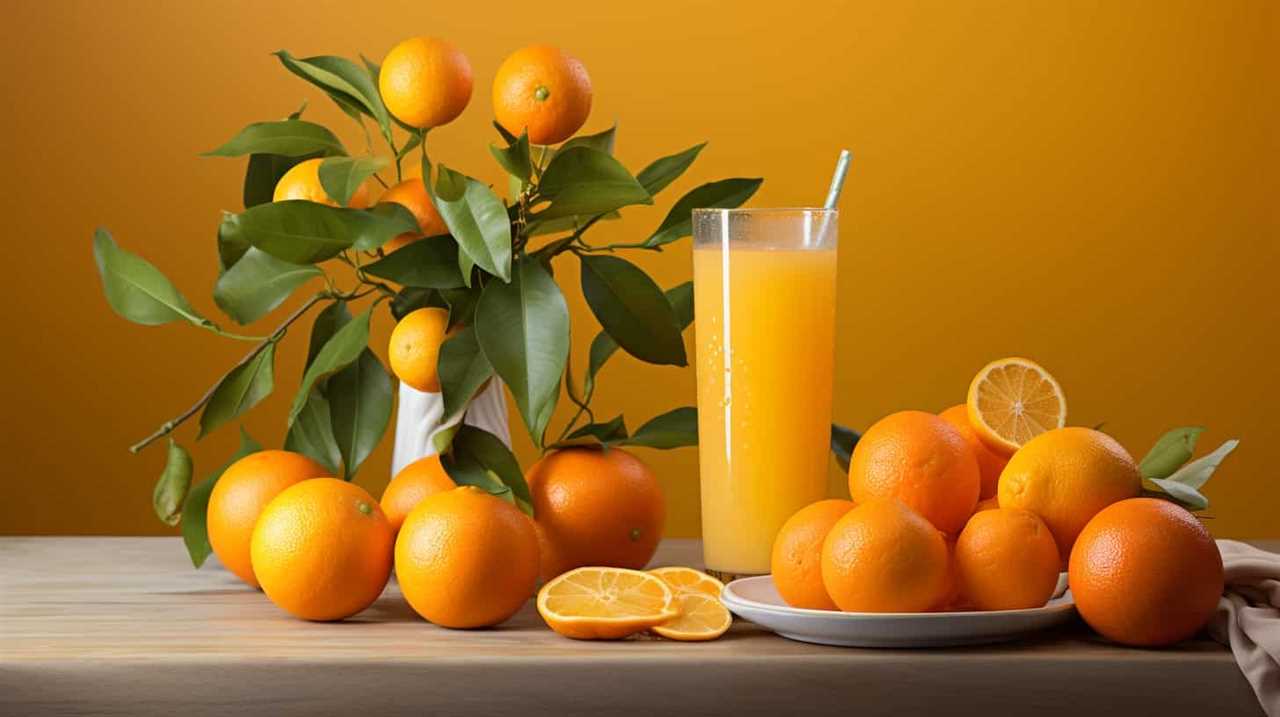
Boosting Immunity With Vegetable Juices
Crafting vegetable juices can boost our immunity and enhance our overall health. Vegetable juices are packed with essential nutrients that can help strengthen our immune system. These juices are rich in vitamins, minerals, and antioxidants, which play a crucial role in supporting our body’s defense mechanisms.
For example, carrots are high in vitamin A, which helps maintain the integrity of our skin and mucosal cells, preventing pathogens from entering our body. Leafy greens like spinach and kale are excellent sources of vitamin C, which is known to boost immune function.
Additionally, vegetable juices are also beneficial for improving digestion. They contain fiber, which aids in regulating bowel movements and promoting a healthy gut. The enzymes present in these juices can also help break down food and increase nutrient absorption.
Weight Loss and Detoxification With Vegetable Juices
Vegetable juices can play a significant role in promoting weight loss and detoxification. Here are three reasons why incorporating vegetable juices into your diet can be beneficial for achieving these goals:

- Weight Loss: Vegetable juices are low in calories and high in nutrients, making them an excellent choice for weight loss. They provide a feeling of fullness while supplying essential vitamins and minerals. By replacing high-calorie snacks or meals with vegetable juices, you can reduce your overall calorie intake and support weight loss.
- Detoxification: Vegetable juices are packed with antioxidants and phytonutrients that help remove toxins from the body. They support liver function, which is crucial for detoxification. Regular consumption of vegetable juices can aid in flushing out waste products, promoting a healthier body and clearer skin.
- Digestion Improvement: Many vegetables contain dietary fiber, which is essential for maintaining a healthy digestive system. Juicing vegetables can help break down fiber, making it easier for the body to absorb nutrients and improve digestion. This can lead to reduced bloating, increased regularity, and improved overall digestive health.
Incorporating vegetable juices into your daily routine can be a simple and effective way to support weight loss, detoxification, and improved digestion. Cheers to a healthier you!
Enhancing Energy and Vitality Through Vegetable Juices
Continuing the discussion from the previous subtopic, incorporating vegetable juices into our daily routine can enhance our energy and vitality. By consuming nutrient-rich vegetable juices, we can increase stamina and rejuvenate our bodies. Vegetables such as kale, spinach, and carrots contain essential vitamins, minerals, and antioxidants that provide a natural energy boost. These juices are also a great source of hydration, which is crucial for maintaining optimal energy levels throughout the day.
To give you a visual representation of the benefits, take a look at the table below:
| Vegetable Juice | Benefits |
|---|---|
| Kale Juice | High in iron and vitamin C |
| Spinach Juice | Rich in magnesium and folate |
| Carrot Juice | Packed with beta-carotene |
| Beet Juice | Increases blood flow and oxygen |
| Cucumber Juice | Excellent for hydration |
Incorporating these vegetable juices into our diet can provide a natural and sustainable way to enhance our energy and vitality. By nourishing our bodies with these nutrient-dense beverages, we can achieve a greater sense of well-being and productivity in our day-to-day lives.
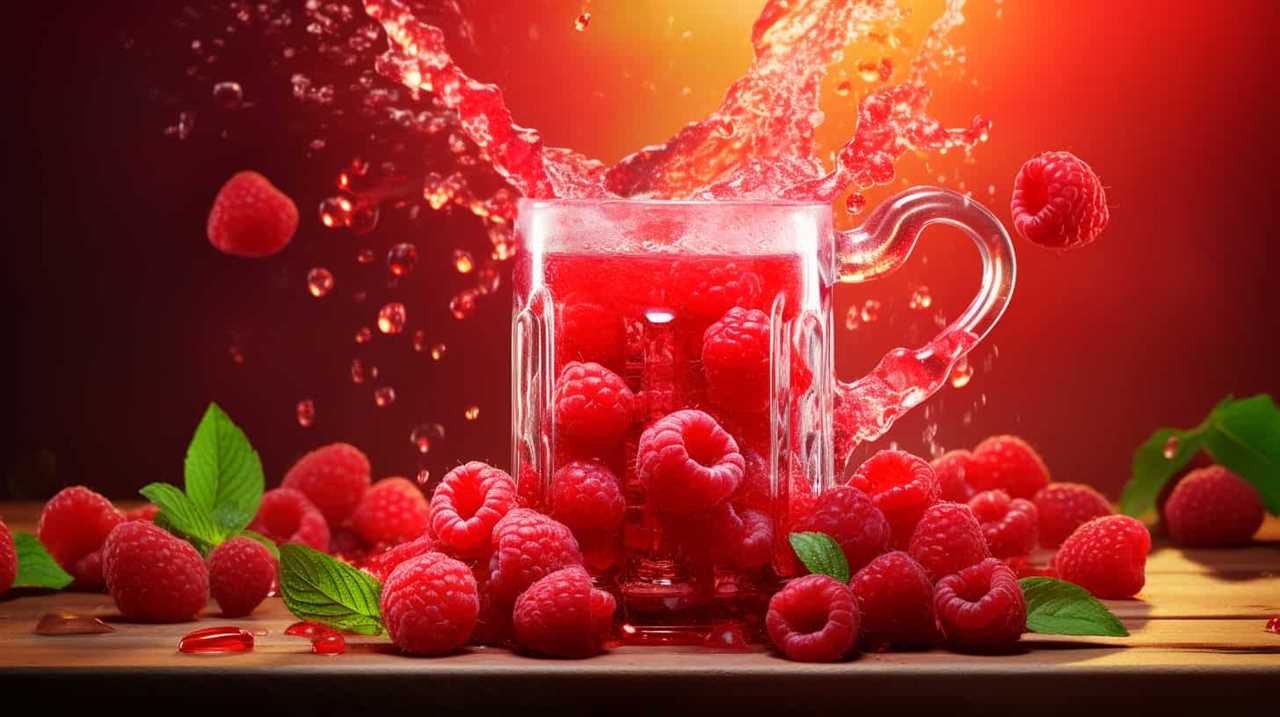
Frequently Asked Questions
What Are the Best Vegetables to Use for Making Vegetable Juices?
The best vegetables for making vegetable juices are leafy greens like spinach and kale, along with cucumbers, celery, and carrots. These veggies are packed with nutrients and antioxidants, making them super beneficial for our health. Plus, they taste delicious in juice form!
Can Vegetable Juices Replace a Meal in a Balanced Diet?
Vegetable juices can be a nutritious meal replacement due to their high nutritional content. They provide essential vitamins and minerals, promoting a balanced diet. Learning to craft them allows us to serve others healthier options.
Are There Any Risks or Side Effects Associated With Consuming Vegetable Juices?
There are potential risks and side effects associated with consuming vegetable juices, such as nutrient imbalances or digestive issues. However, when consumed in moderation and as part of a balanced diet, vegetable juices can provide numerous health benefits.
How Long Do Vegetable Juices Stay Fresh and Retain Their Nutritional Value?
Vegetable juices can stay fresh for up to 72 hours when stored properly. To preserve nutrients, it is recommended to consume them immediately after juicing. Learning to craft vegetable juices allows us to enjoy their maximum benefits.

Can I Mix Fruits With Vegetables to Make a More Flavorful Juice?
Yes, you can mix fruits with vegetables to create a more flavorful juice. By experimenting with different combinations, you can craft unique and tasty vegetable juices that are not only delicious but also packed with nutrients.
Conclusion
So why not start crafting your own vegetable juices today?
By incorporating these nutritious drinks into your daily routine, you can experience a multitude of health benefits.
From boosting your immunity and aiding in weight loss to enhancing your energy and vitality.
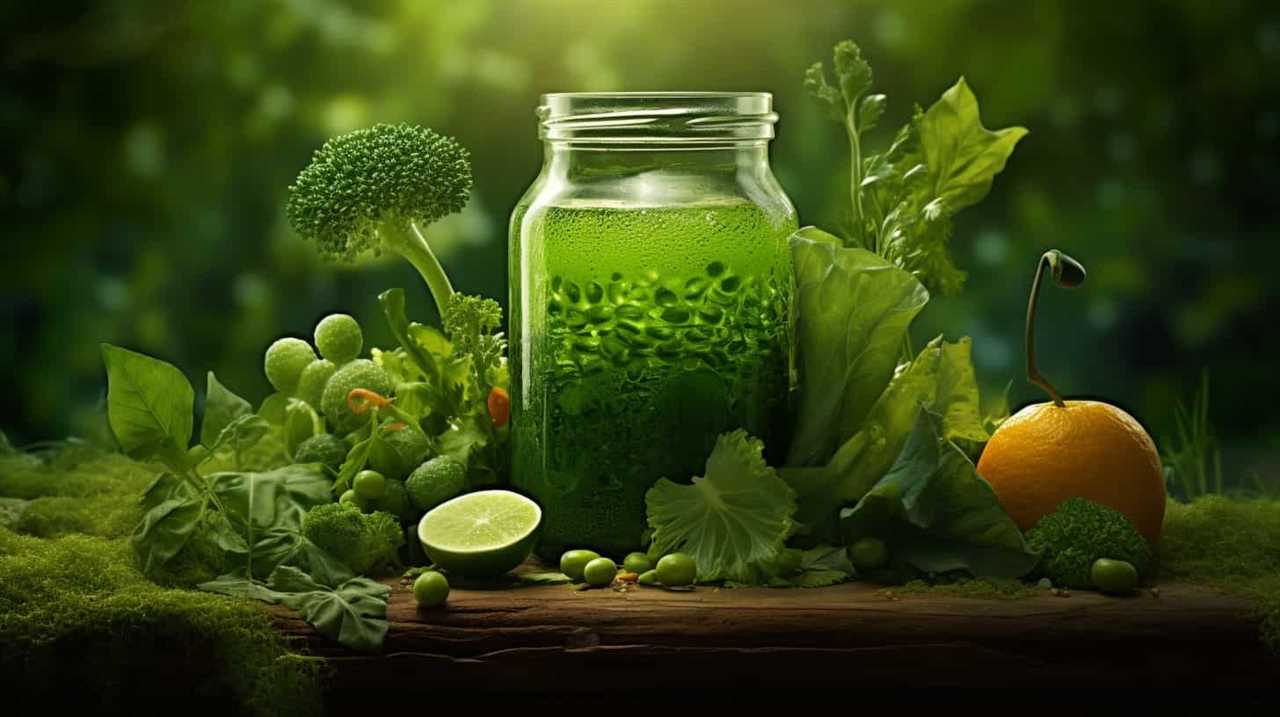
Imagine the vibrant colors and refreshing flavors of freshly squeezed vegetable juices, nourishing your body from the inside out.
Take control of your health and embark on this delicious and practical journey towards a vibrant and revitalized life.
Susannah expertise lies in researching and compiling evidence-based content on juicing, nutrition, and overall health. She is committed to ensuring that The Juicery World offers accurate, up-to-date, and trustworthy information to empower readers to take control of their health. Susannah’s goal is to inspire individuals to embrace juicing as a way to nourish their bodies and live their best lives.
-

 Juice Tips and Tricks3 weeks ago
Juice Tips and Tricks3 weeks agoHow To Make Homemade Pickle Juice
-

 Health Benefits of Juice1 month ago
Health Benefits of Juice1 month agoHow Much Bottled Lemon Juice Equals 1 Lemon
-

 Juice Tips and Tricks1 week ago
Juice Tips and Tricks1 week agoHow Much Lemon Juice Is Equal To Half A Lemon
-

 Juice Tips and Tricks2 weeks ago
Juice Tips and Tricks2 weeks agoHow Much Lemon Juice Concentrate Equals One Lemon
-

 Popular Juice Brands3 months ago
Popular Juice Brands3 months ago10 Top-Rated Organic Juice Brands to Try
-

 Popular Juice Brands3 months ago
Popular Juice Brands3 months ago9 Best No-Sugar-Added Popular Juice Brands
-

 Juice Tips and Tricks2 days ago
Juice Tips and Tricks2 days agoHow Long Can You Drink Orange Juice After The Expiration Date
-

 Juice Tips and Tricks1 month ago
Juice Tips and Tricks1 month agoHow Long Does Lemon Juice Last After Expiration Date










